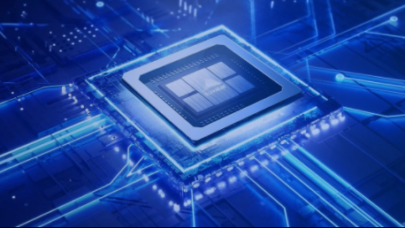
Google Introduces ‘Hypercomputer’ to Its AI Infrastructure
December 11, 2023
Google ran out of monikers to describe its new AI system released on December 7. Supercomputer perhaps wasn't an apt description, so it settled on Hypercomputer Read more…

AI-Accelerated Technology Investment Guidelines for HPC
October 25, 2023
When planning an AI or HPC investment, applications are where the rubber meets the road and ultimately determine the benefits of any hardware investment. In add Read more…

How AMD May Get Across the CUDA Moat
October 5, 2023
When discussing GenAI, the term "GPU" almost always enters the conversation and the topic often moves toward performance and access. Interestingly, the word "GPU" is assumed to mean "Nvidia" products. (As an aside, the popular Nvidia hardware used in GenAI are not technically... Read more…

Squeezing CPUs: AVX-512 Benchmarks Point to More Performance Without GPUs
August 3, 2023
The success of GPU coprocessors has invited developers to focus on combined CPU/GPU performance and optimization. Primarily by using CUDA, (and OpenCL, OpenACC, Read more…

Google’s ML Compiler Initiative Advances
September 12, 2019
Machine learning models running on everything from cloud platforms to mobile phones are posing new challenges for developers faced with growing tool complexity. Read more…

What’s New in HPC Research: The Race to Exascale, Reproducibility, TensorFlow & More
April 26, 2019
In this bimonthly feature, HPCwire highlights newly published research in the high-performance computing community and related domains. From parallel programm Read more…

Google Open Sources TensorFlow Version of MorphNet DL Tool
April 18, 2019
Designing optimum deep neural networks remains a non-trivial exercise. “Given the large search space of possible architectures, designing a network from scrat Read more…

Automated Optimization Boosts ResNet50 Performance by 1.77x
October 23, 2018
From supercomputers to cell phones, every system and software device in our digital panoply has a growing number of settings that, if not optimized, constrain Read more…

- Click Here for More Headlines

Whitepaper
How Direct Liquid Cooling Improves Data Center Energy Efficiency
Data centers are experiencing increasing power consumption, space constraints and cooling demands due to the unprecedented computing power required by today’s chips and servers. HVAC cooling systems consume approximately 40% of a data center’s electricity. These systems traditionally use air conditioning, air handling and fans to cool the data center facility and IT equipment, ultimately resulting in high energy consumption and high carbon emissions. Data centers are moving to direct liquid cooled (DLC) systems to improve cooling efficiency thus lowering their PUE, operating expenses (OPEX) and carbon footprint.
This paper describes how CoolIT Systems (CoolIT) meets the need for improved energy efficiency in data centers and includes case studies that show how CoolIT’s DLC solutions improve energy efficiency, increase rack density, lower OPEX, and enable sustainability programs. CoolIT is the global market and innovation leader in scalable DLC solutions for the world’s most demanding computing environments. CoolIT’s end-to-end solutions meet the rising demand in cooling and the rising demand for energy efficiency.
Download Now
Sponsored by CoolIT
Whitepaper
Transforming Industrial and Automotive Manufacturing
Divergent Technologies developed a digital production system that can revolutionize automotive and industrial scale manufacturing. Divergent uses new manufacturing solutions and their Divergent Adaptive Production System (DAPS™) software to make vehicle manufacturing more efficient, less costly and decrease manufacturing waste by replacing existing design and production processes.
Divergent initially used on-premises workstations to run HPC simulations but faced challenges because their workstations could not achieve fast enough simulation times. Divergent also needed to free staff from managing the HPC system, CAE integration and IT update tasks.
Download Now
Sponsored by TotalCAE
Advanced Scale Career Development & Workforce Enhancement Center
Featured Advanced Scale Jobs:
HPCwire Resource Library
HPCwire Product Showcase
© 2024 HPCwire. All Rights Reserved. A Tabor Communications Publication
HPCwire is a registered trademark of Tabor Communications, Inc. Use of this site is governed by our Terms of Use and Privacy Policy.
Reproduction in whole or in part in any form or medium without express written permission of Tabor Communications, Inc. is prohibited.
























